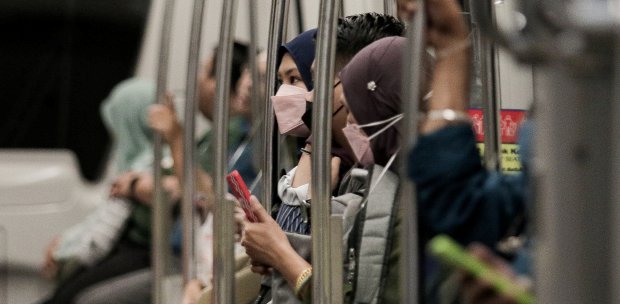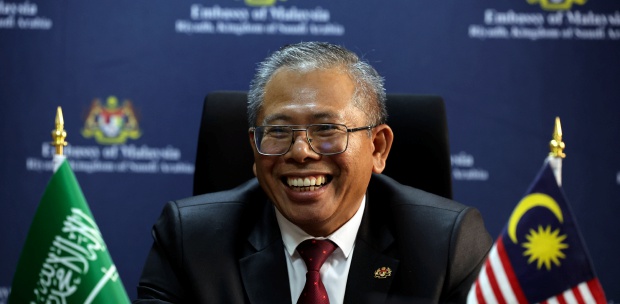THE Covid-19 pandemic over the past two years has heightened the vulnerability of Malaysian women and girls to problems such as mental health, domestic violence, period poverty, limited or inflexible occupational arrangements and socio-economic empowerment.
Although the government, corporate sector, and non-governmental organisations (NGOs) have been playing their roles through awareness programmes, the gender gap persists in Malaysia.
As shown by the World Economic Forum (WEF) in its Global Gender Gap Report 2021, Malaysia ranked 112 out of 156 countries with a score of 0.676.
Notwithstanding, we scored well in the "Educational Attainment" and "Health and Survival" categories — at 0.994 and 0.972, respectively. However, the nation scored moderately in the "Economic Participation and Opportunity" category at 0.638. In terms of "Political Empowerment", we scored poorly at 0.102.
In addition, the Malaysia Gender Gap Index (MGGI) — which is based on the methodology of the WEF index and uses the latest data at the Department of Statistics Malaysia (DOSM) — shows that in the sub-indexes such as "Educational Attainment" and "Health and Survival", we scored remarkably well at 1.059 and 0.956, respectively in 2020.
Most importantly, education attainment among Malaysian women is higher than among men.
Higher education attainment among Malaysian women compared to men coincides with the finding from WEF, where female tertiary education enrolment rate was 49.9 per cent compared with 40.7 per cent for men in 2021.
However, a lower labour force participation rate (LFPR) among women has contributed to a lower score of 0.738 for the "Economic Participation and Opportunity" sub-index. In 2020, Malaysia's women LFPR consisted of only 55.3 per cent, which is lower than Singapore (69.7 per cent) and Thailand (66.8 per cent).
A limited number of women representatives in ministerial positions and Parliament has led to the "Political Empowerment" sub-index only scoring 0.1. It aligns with the findings from WEF, where women occupy only 14.9 and 16.1 per cent of parliament and ministerial positions.
Moreover, work-from-home (WFH) arrangements during the Covid-19 pandemic has increased the burden of childcare, housework, cooking and other domestic chores among working parents. Such a scenario often disproportionately affects working women, who have had to bear most of the family responsibilities compared with men, besides fulfilling their employers' expectations in a WFH environment.
The ongoing stress from family responsibilities and the high-pressure environment of confinement has contributed to a rise in domestic violence during the pandemic. Working parents became riled or frustrated with each other easily.
Women, Family and Community Development Minister Datuk Seri Rina Harun revealed in September 2021 that 9,015 police reports came under domestic violence since the lockdown measures for the Covid-19 pandemic started in March 2020.
Also, the long isolation from the prolonged lockdown has caused more Malaysians to have mental health problems. Some of them chose to commit crimes to survive or take the tragic step of suicide.
Out of 1,708 suicides between January 2019 and May 2021, 83.5 per cent (1,427) involved women.
EMIR Research has written about single mothers, in particular, were socially and economically vulnerable to suicide when they become so desperate arising from the lack of financial capability to provide for their children.
The Covid-19 pandemic has further exposed the issue of period poverty.
Many hardcore poor and B40 female-headed households face inadequate or poor access to safe and hygienic sanitary products due to financial constraints.
With no extra money, many young girls and women had to use tattered clothes, coconut husks, used newspapers and even banana leaves instead of sanitary products.
When they do not have proper access to menstruation products, they could barely concentrate on their studies or work during the menstruation period. Eventually, this might result in more young girls dropping out of school or women being out of work (in the long run).
The government's effort to provide more local social support centres for domestic violence victims and basic personal hygiene kits to 130,000 B40 female teenagers under Budget 2022 is laudable.
However, there is still a critical need to intensify the advocacy and promotion of women issues so that men could have a clearer idea of what women are facing (and vice versa).
We should emphasise and prioritise exposure via education — both parental and formal. Parents are the first to teach their kids about gender differences, which starts as soon as they are born – whereas teachers play a pivotal role later.
To address Malaysia's gender gap effectively, schools have to equip teachers to teach a variety of education modules at the primary, secondary and tertiary levels.
Hence, EMIR Research would like to recommend that the Ministry of Education emphasise:
1. Sexual and reproductive health education for boys and girls from a young age (i.e., at the age of 10 onwards) by including topics like reproductive health, substance abuse, emotion management, family, relationships, diseases and safety.
There will be greater awareness at the community and societal level when boys and girls engage with sexual and reproductive health issues/topics through the formal schooling environment as well as the wider regular social encounters.
2. Science, Technology, Reading, Engineering, Arts and Mathematics (STREAM) education
Former Education Minister, Maszlee Malik indicated in March 2021 that it is crucial to increase the interest among students in STEM (Science, Technology, Engineering and Mathematics), expand access to learning STEM subjects and evolve STEM to STREAM.
However, this STREAM education initiative has to come with appropriate digital devices and connectivity.
Students without digital devices or Internet access could not upgrade their digital, reading and technical skills, thereby diminishing their chance to find decent jobs after graduation.
3. Moral education to help children acquire a set of beliefs and values on what is right and wrong.
This should ensure that values that are passed on are reinforced and impressed upon by the interaction between the primary role model (parents) with the secondary role model (teachers).
4. Civic education to equip and empower citizens to participate in democratic processes. Students would properly understand and appreciate their rights and responsibilities as citizens — which is part of the wider nation-building process.
To summarise, the Education Ministry could work closely with the Women, Family and Community Development Ministry, civil societies and corporate sector to educate Malaysians on gender issues comprehensively and holistically.
When men and women pay more attention to issues affecting the other gender, they would view them as national issues that will affect the life of every Malaysian.
The writer is a research analyst at EMIR Research
The views expressed in this article are the author's own and do not necessarily reflect those of the New Straits Times





